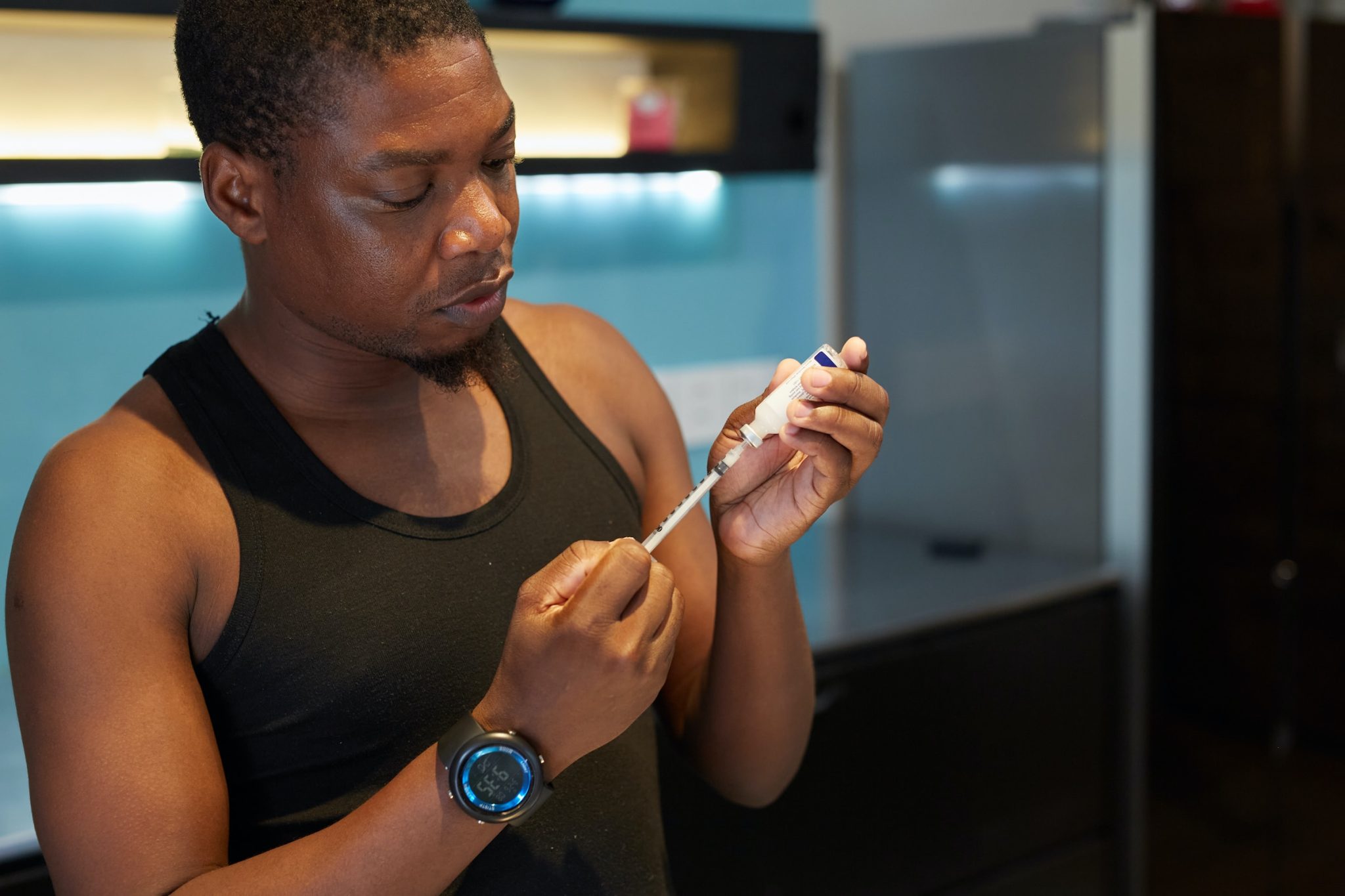Living with diabetes can be a challenging journey, but it doesn’t have to hinder your ability to live a fulfilling and balanced life. You can achieve balance and overall wellness by adopting a holistic approach to managing your condition. This article will explore eight essential strategies to help you live well with diabetes and maintain a healthy lifestyle.

Table of Contents
Education and Understanding
Managing diabetes involves educating yourself about the condition. Understand the different types of diabetes, their causes, symptoms, and treatment options. Learn about diet, exercise, medications, and monitoring in managing blood sugar levels. Stay informed about the latest research and advancements in diabetes care, including using Diabetic socks designed for men, which provide additional comfort and support for foot health. Having a solid understanding of diabetes, you can decide and take proactive steps to manage your condition effectively.
Healthy Eating and Meal Planning
A healthy diet is important for people managing the symptoms of diabetes. Focus on consuming a well-balanced diet that includes a variety of fruits and vegetables. You also need to include whole grains, lean proteins, and healthy fats. Incorporate foods with a low glycemic index, as they have an insignificant impact on blood sugar levels. Avoid sugary or processed foods that can cause blood sugar spikes. Work with a dietitian to have a tailored meal plan that suits your dietary needs and preferences. Regularly monitor your carbohydrate intake and learn to read food labels to make informed choices. Adopting a healthy eating plan can better control your blood sugar levels and promote overall wellness.
Regular Physical Activity
Engaging in regular physical activity offers numerous benefits for individuals with diabetes. Exercise helps improve insulin sensitivity, lower blood sugar levels, manage weight, reduce stress, and enhance cardiovascular health. Aim for a couple of hours of moderate-intensity aerobic activity per week. This includes brisk walking, cycling, swimming, or dancing. Include strength training exercises as well a couple of times a week to build muscle and improve overall fitness. But before you start an exercise program, consult your healthcare practitioner to ensure it is safe and suitable for your condition. Monitor your blood sugar levels routinely before, during, and after exercise, and adjust your medications or carbohydrate intake accordingly. Regular physical activity not only helps manage diabetes but also boosts your mood and promotes overall well-being.
Blood Sugar Monitoring and Medication Management
Monitoring your blood sugar levels is a fundamental aspect of diabetes management. Regularly check your blood sugar using a glucose meter or continuous monitoring system. This allows you to track how your body responds to various foods, exercise, medications, and stressors. Work closely with your healthcare team to establish target blood sugar ranges and develop a plan for managing fluctuations. If prescribed medication, take it as directed and understand how it works to regulate your blood sugar levels. Learn the signs and symptoms of hypo and hyperglycemia and take appropriate actions to prevent and treat these conditions. By staying diligent with blood sugar monitoring and medication management, you can maintain better control over your diabetes and minimize the risk of complications.
Stress Management and Emotional Well-being
Stress can significantly impact blood sugar levels in individuals with diabetes. Developing effective stress management strategies to maintain balance and emotional well-being is essential. Explore relaxation techniques such as deep breathing exercises to reduce stress levels. Engage in activities that you enjoy, helping you unwind, such as spending time in nature, practicing hobbies, or socializing with loved ones. Seek support from family, friends, or diabetes support groups to share your experiences and emotions.
Or work with a mental health professional or counselor specializing in diabetes care. They can provide guidance to help you go through the emotional challenges of living with diabetes. Additionally, prioritize self-care and make time for activities that promote relaxation and self-reflection. This could include bathing, reading, listening to music, journaling, or engaging in creative outlets. Remember that managing your emotional well-being is as important as managing your physical health when living well with diabetes.
Regular Medical Check-ups and Diabetes Education
Regular medical check-ups are essential for monitoring your overall health and diabetes management. Schedule regular visits with your healthcare team, including your primary care physician, endocrinologist, or diabetes educator. These visits allow for monitoring blood sugar levels, blood pressure, cholesterol levels, and overall diabetes management. Discuss any concerns or challenges you may face and work together to adjust your treatment plan, if necessary. Additionally, continue to educate yourself about diabetes by attending workshops, seminars, or support groups specific to the condition. Staying informed and up-to-date with the latest research and treatment options will empower you to make informed decisions regarding your health.
Sleep and Rest
Sleeping is crucial for overall health and well-being, especially for individuals with diabetes. Poor sleep can affect blood sugar control and increase the risk of developing insulin resistance. Aim for 7-9 hours of quality sleep each night. Establish a regular sleep schedule and create a sleep-friendly environment by keeping your bedroom cool, dark, and quiet. Avoid stimulating activities or screens before bed, and practice relaxation techniques to help you unwind and prepare for sleep. If you struggle with sleep disturbances, such as sleep apnea or restless leg syndrome, consult your healthcare team for appropriate interventions. Prioritizing sleep and rest will improve diabetes management and enhance your overall quality of life.
Positive Support Network
Having a positive support network is invaluable when living with diabetes. Surround yourself with supportive family members, friends, and healthcare professionals who understand and empathize with your journey. Share your experiences, concerns, and achievements with them, as this can provide emotional support and encouragement. Consider joining diabetes support groups or online communities to connect with others facing similar challenges. Engaging in open discussions and learning from each other’s experiences can provide valuable insights and a sense of belonging. Remember, you are not alone in your diabetes journey, and having a support network can help you navigate the ups and downs of managing the condition.

Living well with diabetes requires a comprehensive approach addressing physical and emotional well-being. By implementing these eight key strategies, including education and understanding, healthy eating and meal planning, regular physical activity, blood sugar monitoring and medication management, stress management, and emotional well-being, regular medical check-ups and diabetes education, prioritizing sleep and rest, and cultivating a positive support network, you can achieve a sense of balance and overall wellness while effectively managing your diabetes. Remember to consult with your healthcare team for personalized guidance and support on your journey toward living well with diabetes.
- About the Author
- Latest Posts
Whether she is researching the latest trends in home decor, life-changing destination getaways, or the best way to maintain your finances, Dewey takes pride in leaving no stone unturned. She is passionate about distilling and delivering high-quality information that you can use to upgrade your life.

